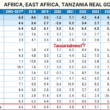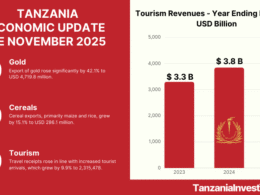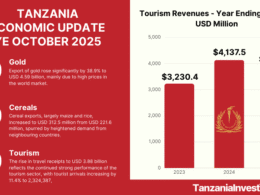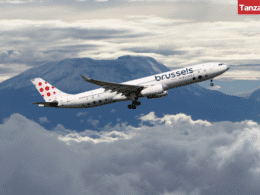While speaking at the recent two-day 9th Africa Investment Forum, Emmanuel Ole Naiko, the Executive Director of the Tanzania Investment Center (TIC), indicated that, in at least five cities in which Tanzania tourism business is being conducted, approximately 50 attractions have received TIC certification; these cities include Arusha, Dar es Salaam, Mbeya, Mwanza and Tanga.
While at the Forum, Mr. Ole Naiko presented on the progress of Tanzania investment, indicating that private domestic tourism, which was nonexistent in the 1990’s, currently accounts for 45 percent of the total.
Mr. Ole Naiko went on to explain that the six areas of investment on which the TIC is focused are agriculture, extractive industries, infrastructure, tourism, services and education.
With regard to the area of agriculture, Mr. Ole Naiko indicated that the primary focus is on large scale farming, but out grower’s production, which includes primarily small scale farmers, has also grown between 30 and 50 percent.
According to the TIC Executive Director, the center is now currently accepting between 40 and 60 projects every week to be sent to processing.
During the Forum, the presidential Country Roundtable was chaired by President Mwai Kibaki of Kenya.
While speaking at the Tanzania Country Roundtable, President Kikwete emphasized the need for Tanzanians to increase their investments within the country.
According to President Kikwete, while some Tanzanians travel as far as Guangzhou, China in order to purchase supplies to be transported and sold in East Africa, the potential exists within Tanzania to create manufacturing and supply centers that would eliminate the need to travel to other countries.
“They could make use of our country’s geography by creating manufacturing centers that would act as supply centers of the same goods to other parts of the region,” he said.
According to a recent report by the Guardian Tanzania, President Kikwete has confirmed that the proper analysis was done on the ‘Kilimo Kwanza’ potato seed program prior to implementation by the Tanzania government.
“This is what makes it different from the rest of the previous agricultural development programs initiated in the country,” he said.
President Kikwete went on to explain that 75 percent of the seeds that are imported under the ‘Kilimo Kwanza’ project will be produced in seed multiplication centers throughout the country, including those in Lyamungo, Nyegezi and Uyole.
In addition, the Tanzania president indicated that the government is currently planning to establish a commodity exchange program that has been designed to help ease process of marketing the crops that farmers produce.










